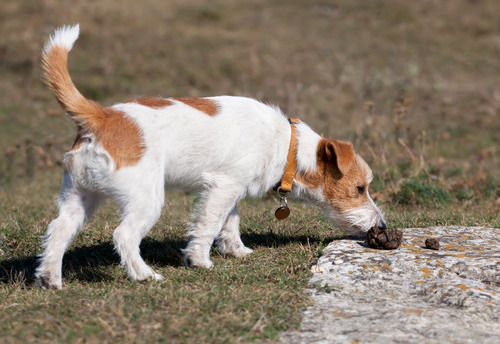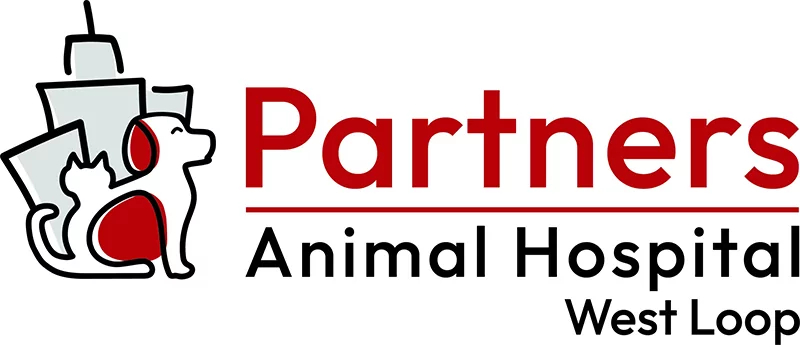Why Does My Dog Eat Their Own Poop?

Dogs are known for some peculiar habits, but one behavior that often leaves pet parents bewildered is coprophagia—the act of eating poop. If your dog eats their own poop, you’re not alone, and as unpleasant as it may be, this behavior is not uncommon. While it’s natural to feel concerned, understanding the reasons behind this habit can help you address the issue effectively. In this blog, we’ll explore why some dogs develop this behavior, when it might be a cause for concern, and what steps you can take to manage it. For expert advice and care, call Partners Animal Hospital West Loop at (312) 767-4762 or book an appointment online today!
Understanding Why Dogs Eat Their Own Poop
Dogs might eat their poop for several reasons, ranging from natural instincts to behavioral or health-related factors. While this behavior can seem alarming or gross, it’s important to remember that it often has an underlying explanation.
Natural Instincts
In the wild, wolves and other canine ancestors would sometimes eat poop to keep their dens clean and reduce the risk of parasites or predators. Similarly, mother dogs instinctively eat their puppies’ waste to keep the nesting area hygienic. Even though your pet lives in a clean, modern home, these natural instincts may persist, especially in young dogs or puppies.
Attention-Seeking Behavior
Sometimes, a dog eats their own poop to get attention. If a dog feels neglected or wants interaction, even a scolding might reinforce the behavior. This can create a cycle where your dog continues eating their waste simply because it guarantees a response from you.
Coprophagia in Puppies
Puppies are naturally curious about their environment and often explore with their mouths. During this exploratory phase, it’s not uncommon for puppies to sample poop. While most puppies grow out of this habit, others may continue the behavior if not redirected early.
Health Reasons That May Cause a Dog to Eat Their Own Poop
If your dog eats their own poop frequently, it might indicate an underlying health issue. In these cases, a visit to your veterinarian is essential to rule out or address medical causes.
Nutritional Deficiencies
One of the most common health-related reasons for coprophagia is a nutritional imbalance or deficiency. Dogs may instinctively eat poop to seek out nutrients their diet is lacking. If their food doesn’t provide adequate vitamins, minerals, or calories, they may resort to eating feces to compensate.
Digestive Disorders
Some dogs eat their poop because their bodies don’t properly absorb nutrients. Disorders like exocrine pancreatic insufficiency (EPI) can prevent your dog from digesting food properly, leading to the excretion of partially digested material that may still contain nutrients. This can attract a dog to their waste.
Parasites
Intestinal parasites can rob your dog of essential nutrients, leaving them feeling hungry or nutrient-deprived. This can trigger them to eat their own poop as a way to make up for what their body is missing. If you suspect a health issue, call Partners Animal Hospital West Loop at (312) 767-4762 to schedule a checkup or book an appointment online.
Behavioral Causes of Coprophagia in Dogs
In addition to health-related factors, certain behaviors or environmental issues can contribute to a dog eating their own poop. Identifying these triggers is key to managing the habit effectively.
Stress or Anxiety
Stressful situations, such as changes in your dog’s routine, a new pet in the house, or a move to a new environment, can lead to behaviors like coprophagia. Dogs may eat poop as a self-soothing mechanism when they feel anxious or overwhelmed.
Boredom
Dogs need mental stimulation and physical activity to stay happy and healthy. If a dog is left alone for long periods or doesn’t get enough exercise, they may resort to eating poop simply to occupy themselves.
Punishment-Based Training
If a dog has been punished harshly for having accidents indoors, they may eat their poop to hide the evidence. This behavior is a direct result of fear and should be addressed with positive reinforcement training instead.
How to Stop Your Dog From Eating Their Own Poop
Managing coprophagia requires a combination of addressing potential health issues, correcting behavioral triggers, and making changes to your dog’s environment. Here are some practical steps you can take:
- Ensure a Balanced Diet: Make sure your dog’s diet provides all the nutrients they need. Consult your veterinarian to determine whether their food is nutritionally complete and appropriate for their breed, age, and size. Adding supplements, if recommended by your vet, can also help.
- Clean Up Immediately: Removing poop from your dog’s environment promptly can prevent them from accessing it. Keep your yard clean, supervise your dog during bathroom breaks, and dispose of waste as soon as possible.
- Use Deterrents: Some pet-safe products can be added to your dog’s food to make their waste less appealing. These deterrents are designed to create an unpleasant taste, discouraging your dog from eating their poop.
- Increase Mental Stimulation: Provide plenty of toys, puzzles, and activities to keep your dog engaged. Regular exercise and playtime can also reduce boredom and stress, minimizing the likelihood of unwanted behaviors.
- Reward Good Behavior: When your dog goes to the bathroom and doesn’t attempt to eat their waste, reward them with treats or praise. Positive reinforcement can encourage better habits over time.
When Is It Necessary to Seek Veterinary Advice?
While coprophagia is often harmless, it’s important to consult your veterinarian if:
- The behavior begins suddenly and without an obvious trigger.
- Your dog shows signs of illness, such as weight loss, vomiting, or diarrhea.
- The poop-eating persists despite efforts to address it at home.
Your veterinarian can help rule out underlying health issues and provide tailored advice for your dog’s specific needs. Contact Partners Animal Hospital West Loop for professional guidance.
Helping Your Dog Break the Habit
If your dog eats their own poop, remember that you’re not alone—many pet parents face the same challenge. While this behavior may seem frustrating or embarrassing, it’s often manageable with the right combination of patience, training, and veterinary care. Whether it’s addressing a potential health concern, improving your dog’s diet, or enhancing their environment, there are many ways to help your furry friend overcome this habit. Reach out to the experts at Partners Animal Hospital West Loop for advice or support. Call (312) 767-4762 or book an appointment online to discuss your dog’s health and behavior with a caring veterinary team.
About Us
At Partners Veterinary Group, we believe in energizing our team members through shared values, while helping them create value for our clients and patients. Knowing we can help make pets’ and people’s lives better motivates us to continually strive for excellence and love what we do.
Our team consistently works to build educational, supportive, and cooperative work environments that cater to positive experiences and professional growth. We’re constantly evolving, creating innovative ways to deliver cutting-edge medicine to our patients. We equip our teams with tools to enhance their skills and improve their knowledge.
